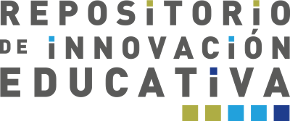Por favor, use este identificador para citar o enlazar este ítem:
https://www.innovacioneducativa.unam.mx:8443/jspui/handle/123456789/7404Registro completo de metadatos
| Campo DC | Valor | Lengua/Idioma |
|---|---|---|
| dc.contributor.author | López-Mari, María | - |
| dc.contributor.author | Martín-Alonso, Ángel San | - |
| dc.contributor.author | Peirats-Chacón, José | - |
| dc.date.accessioned | 2023-03-24T01:03:41Z | - |
| dc.date.available | 2023-03-24T01:03:41Z | - |
| dc.date.created | 2022-04 | - |
| dc.date.issued | 2022 | - |
| dc.identifier.issn | 0120-3916 | - |
| dc.identifier.uri | http://132.248.48.19:8080/jspui/handle/123456789/7404 | - |
| dc.description.abstract | Abstract One of the challenges for the education of the future is to ensure the participation and learning of an increasingly heterogeneous student body, with very diverse interests and abilities. This situation has forced the educational community to evolve and look for new ways to teach and learn more active, motivating and cooperative. One of the methodological strategies currently being implemented in education with positive results is gamification. It applies the mechanics of video games that attract and interest the child and youth population and moves them to formal environments such as classrooms. Specifically, this research analyzes the use of gamification as a methodological strategy focused on inclusive education, to assess its effectiveness in improving the education received by students with specific educational support needs in primary education. To this end, using a qualitative methodology, a case study was carried out in 18 Primary Education classrooms of an educational center in the Valencian Community (Spain). The results indicate that there are certain elements that facilitate the inclusion of these students in primary classrooms, such as the structuring of the learning process, the formative and continuous feedback or the personalization of the objectives. | - |
| dc.language.iso | es | - |
| dc.title | De los videojuegos a la gamificación como estrategia metodológica inclusiva | - |
| dc.type | journalArticle | - |
| dcterms.bibliographicCitation | López-Mari, María, Martín-Alonso, Ángel San, & Peirats-Chacón, José. (2022). De los videojuegos a la gamificación como estrategia metodológica inclusiva. Revista Colombiana de Educación, (84), e214. Epub October 30, 2022.https://doi.org/10.17227/rce.84-12518 | - |
| dc.identifier.sinne | SCI288 | - |
| dc.identifier.url | http://www.scielo.org.co/pdf/rcde/n84/0120-3916-rcde-84-e214.pdf | - |
| dc.subject.keywords | juego | - |
| dc.subject.keywords | innovación pedagógica | - |
| dc.subject.keywords | inclusión educativa | - |
| dc.subject.keywords | enseñanza primaria | - |
| dc.subject.keywords | método de enseñanza | - |
| dc.subject.keywords | educational innovation | - |
| dc.subject.keywords | inclusive education | - |
| dc.subject.keywords | play | - |
| dc.subject.keywords | primary education | - |
| dc.subject.keywords | teaching method | - |
| dc.subject.keywords | jogo | - |
| dc.subject.keywords | inovação pedagógica | - |
| dc.subject.keywords | ensino básico | - |
| dc.subject.keywords | inclusão educacional | - |
| dc.subject.keywords | método de ensino | - |
| dc.relation.fuente | SciELO Colombia | - |
| dc.relation.journal | Revista Colombiana de Educación | - |
| dc.source.novolpages | -84 | - |
| dc.identifier.doi | 10.17227/rce.84-12518 | - |
| Aparece en las colecciones: | Artículos científicos y académicos | |
Ficheros en este ítem:
No hay ficheros asociados a este ítem.
Los ítems de DSpace están protegidos por copyright, con todos los derechos reservados, a menos que se indique lo contrario.


